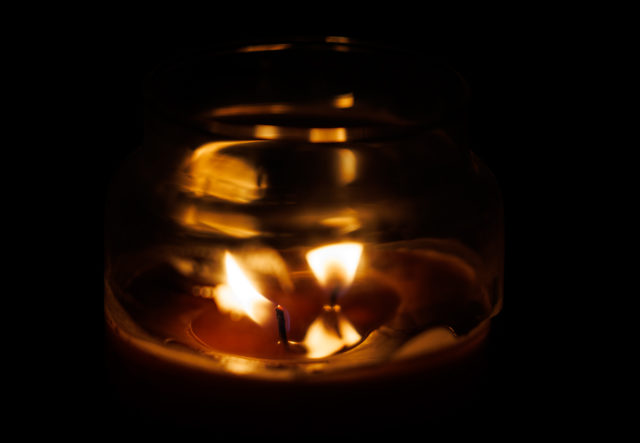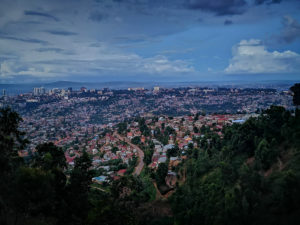They say trauma can last a lifetime.
But for genocide survivors, it can last multiple.
According to the United Nations, genocide can be officially defined as a set of acts that are committed “with intent to destroy, in whole or in part, a national, ethnical, racial or religious group.” Many of these heinous crimes are not spoken about openly today, but the trauma they create often has a generational effect on the descendants of those targeted.
These effects manifest in various ways across communities, depending on the culture and time period. But they all share one similarity: the inability to move on. Many people experience long-lasting effects on their mental health, while others are still doing their best to seek justice for their communities.
UCLA and other institutions must do their part to support students from these persecuted communities. And the first step to doing so is ensuring that their grievances are not forgotten.
The education system has failed many of our students today. There is a lack of awareness about the Rwandan genocide, the Bangladesh genocide, the Sikh genocide and countless others.
The strict definition of genocide means that many similar abuses have fallen through the cracks. And because the public is too often unaware of many of these atrocities, it is even more difficult for communities to heal.
However, it can be difficult for people to speak up about their trauma, especially when so many of the older generations stay silent out of fear.
A student who wishes to remain anonymous out of concern for his safety said he has witnessed his fair share of silence among his elders. Many of his ancestors were survivors of Shia persecution, and his parents were forced to flee from Lebanon because of it.
“They’re hesitant to speak about it until they know that there’s nothing that can befall them as they speak,” he said. “They worry if they say anything, persecution is around the corner.”
Survivors have often been living in fear their whole lives, a fear that is frequently passed on to their children. This is especially true for survivors of genocides such as the Shia genocide, as their community is still subjected to identity-based violence and discrimination.
Additionally, many communities are still committed to receiving justice for their ancestors by ensuring what happened is never forgotten.
Nayiri Artounians, a third-year art history student, has been advocating for greater recognition of the Armenian genocide.
“It’s really important to get other countries to recognize the genocide because that’s the first step,” Artounians said. “Then perhaps after that, they can start to put pressure on Turkey to try to recognize it themselves.”
But getting formal recognition is not an easy feat.
The definition of genocide can encompass a broad range of tragedies, yet there is a limited number of instances in which the U.N. has officially declared an event a genocide. Only three have been legally recognized by the U.N. today, and the Armenian and Shia genocides haven’t made the list.
The U.N. tribunal to formally recognize a genocide does not come with any mechanisms to compensate the survivors of genocide, said Patrick Heuveline, a professor in the sociology department who has done research on the long-lasting effects of the Khmer Rouge genocide in Cambodia. He added that it does ensure there cannot later be a revision of history to deny that the genocide occurred.
And without proper recognition and compensation, the healing process is sure to be even more difficult. Younger generations can often carry a heavy mental toll passed on from their survivor ancestors. A study of the genocide against the Tutsi people in Rwanda revealed that children who are born to survivor mothers developed post traumatic stress disorder symptoms twice as often as those born to Rwandan women not targeted by the genocide.
Trauma comes in all different forms, and not all genocide survivors experience it the same way.
Heuveline said that upon speaking with Cambodian survivors and their children, he found that parents have difficulty engaging in conversations with their children about their trauma.
“Saying something that reopens old wounds, as my aunt used to tell me, is something that people avoid,” the anonymous student said. “They’re not going to talk about it because talking about it might potentially trigger new traumas.”
On the other hand, Artounians said the Armenian community she grew up with in Los Angeles makes active efforts to ensure the Armenian genocide is not forgotten.
“I think every single person (Armenians) can find a connection back to it through a family member or an ancestor,” Artounians said. “It (advocacy) feels sort of like it’s a responsibility that I feel like we have and that we definitely do not take lightly.”
Despite the ways different communities and individuals cope, all genocide survivors deserve access to recognition and support for the toll that generational trauma carries.
UCLA has come a long way in genocide remembrance. For example, the university has hosted events commemorating the Holocaust and the Armenian genocide. However, there is more work that needs to be done, especially for smaller communities. All individuals, including UCLA students, should educate themselves on the effects of genocide, past and present. Through these first steps, we can create a community of support for affected communities and help broaden awareness.
It is our responsibility to fight against injustice where we see it.
But first, we must educate ourselves and one another to ensure we can.



Comments are closed.